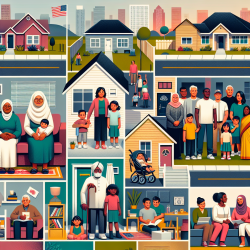The journey to a fulfilling career often begins in childhood. Our early experiences significantly influence our perceptions of gender roles and career capabilities. A recent study titled "The Associations between Childhood Experiences and Occupational Choice Capability, and the Mediation of Societal Gender Roles" explores these associations in depth.
The Role of Childhood Experiences
Childhood is a critical developmental period where individuals form foundational beliefs and attitudes. Positive interactions with family, school, and peers can lead to thriving personal and professional lives. Conversely, adverse experiences may result in challenges later on.
The study highlights that supportive family environments and positive school experiences correlate with better career choices. For instance, children who experience equality in parental roles tend to adopt similar values in adulthood, impacting their professional decisions.
Societal Gender Roles as Mediators
Gender roles are often established early in life and can significantly influence career paths. The research indicates that societal expectations regarding gender can mediate the relationship between childhood experiences and occupational choices. In many cultures, traditional gender roles still dictate the suitability of certain professions for men and women.
This mediation effect suggests that addressing gender biases from an early age could empower individuals to pursue careers aligned with their interests and abilities rather than societal expectations.
Practical Implications for Practitioners
- Cultivate Awareness: Educators and parents should be aware of how their attitudes towards gender roles can shape children's future career aspirations.
- Create Supportive Environments: Schools should foster environments where all children feel valued and supported regardless of gender.
- Encourage Exploration: Encourage children to explore a wide range of interests without the constraints of traditional gender roles.
- Pursue Further Research: Practitioners should consider conducting further research to understand how these dynamics play out in different cultural contexts.
The Path Forward
The study underscores the importance of addressing societal gender roles and enhancing childhood experiences to improve occupational choice capabilities. By understanding these influences, educators and policymakers can develop strategies that promote equitable career opportunities for all individuals.
This knowledge empowers practitioners to create interventions that support positive childhood environments, ultimately leading to more informed and liberated career choices.










